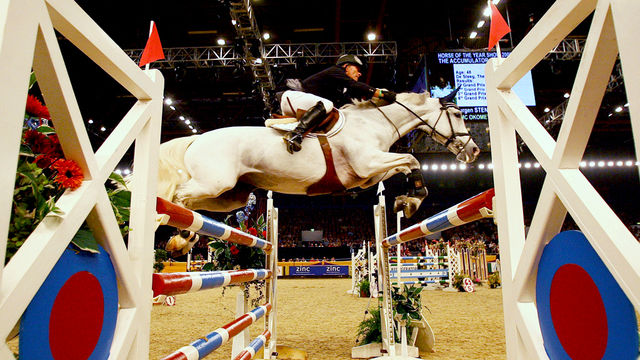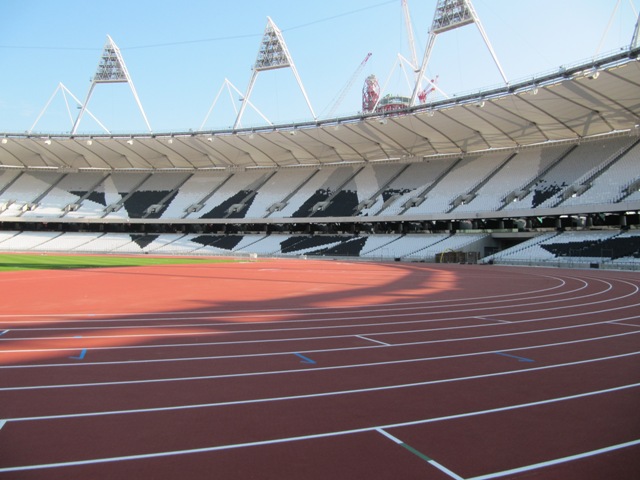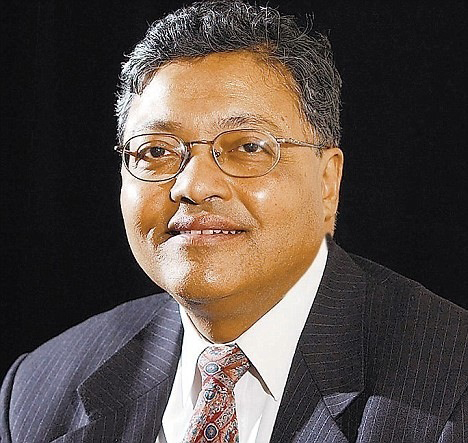The debate about the future of the Olympic Stadium illustrates a very simple sporting truth about this country. The one sport that makes money is football, but only at the highest level.
All other sports, including lower league football, struggle. Any attempt to make money and market a sport other than football, particularly athletics, is extremely difficult and can result in failure.
The Government forgot this sporting truth and the result is that the future of the Olympic Stadium is uncertain and the taxpayer may end up paying for its maintenance.
If you want to judge the dominance of football, look at what is happening to flat racing. At Ascot on Saturday (October 15) we shall have the new Champions Day. The great and good of flat racing including the Queen will be there, indeed she will present a Cup named after her. It will be the richest day’s racing ever staged in this country with £3 million in prize money and the best flat racehorses from around Europe on show.
But observe how racing is presenting the day. It has been promoted as racing’s equivalent of a day that combines the FA Cup Final with the final day of the Premiership season. It is part of racing’s efforts to rebrand. The success of Cheltenham and the Grand National should not obscure the fact that racing, particularly the flat, has been in decline. The marketers the sport hired worked out that the problem was that the flat lacked a narrative and that it needed to borrow ideas from football.
Yes, the flat has great festivals starting at Newmarket with the Guineas and then through the summer, the Derby and the Oaks at Epsom, Royal Ascot, Goodwood, York and on to the St Leger in Doncaster. But there was no single day when the season came to a climax as football does.
In the past, this did not matter. Then three-year-olds went for the triple crown of the Guineas, the Derby and the St Leger. But now the Triple Crown is so tattered that no sensible owner covets it. Hence the need for a grand finale which can be presented as the crowning moment of the racing season. Racing is hopeful that this new Cup final day will work and is making strenuous efforts to promote it. Whether it does or not remains to be seen but the fact that racing is looking to a football idea to rebrand itself shows how the sport has changed and how football has become the religion of the country. Other sporting religions may survive but only if they pay homage to this greatest of British sporting gods.
Those involved in racing are too well aware of how this illustrates the dramatic change in sporting power in this country. As the Newmarket trainer John Godsen put it to me, “Well it’s a strange thing. In the 1960s the Football Association went to the show jumping association and asked them how could they possibly get on as much terrestrial TV as show jumping did? The world has changed and our slice of terrestrial TV time and of the press is being challenged by football.”

So much so that while the Premiership earns billions from television, and Liverpool wants an even bigger slice of the cake for the top clubs, Channel Four’s coverage of racing is partially subsidised by the sport and the BBC has dramatically cut back on the number of racing days it shows.
It is against this background of the mighty power of football that the Government decided to build an Olympic Stadium. But it did not make sure that its main post-Olympic user would be a football club.
This could easily have been done had the original plans for the stadium followed that of Stad de France with retractable seating. This would have taken into account a modern trend in football stadiums in this country (i.e.no running tracks). For decades Wembley may have been the home of football, despite having a running track, but modern football fans and the bosses that control the game, abhor such cohabitation.
However, a Stade de France in Stratford was vetoed by the Treasury on the grounds that it would add £100 million to the Olympic budget. The Treasury, led by Gordon Brown, had always been lukewarm about the Games. Brown’s great passion was getting the World Cup to England and another £100 million for the stadium was the last straw. I know this sounds ridiculous, given the total budget for the Games finally came to £9.3 billion, but that is how Brown and his civil servants minds worked.
How ironic this is now. The extra £100 million the Treasury would not sanction back in 2007 is now the figure being talked about to convert the Stadium and make it rentable once the Olympics are over. During this time the Olympic Stadium design has been through more reincarnations than most of us have had hot dinners, starting with a stadium that was meant to seat 80,000 and then scaled down to 20,000 after the Olympics for athletics use. That London needs a modern athletics stadium is a given. But athletics does not generate money and only football could cover the running costs of the Stadium. The Government just did not do its homework properly.
What is more, in building a Stadium like this in East London, it ignited ambitions and fears in several football clubs. Recall that it was the dream of Terry Brown and his co-owners of West Ham United to move into the new Stadium. That dream prompted Brown and his friends to sell the club to owners who thought that they could make a killing by moving into the new Stadium – a disastrous chain of events that has led to the present ownership.
And it is very clear that Tottenham Hotspur’s real interest in moving from North London to the East End was denying West Ham this prize stadium with its excellent facilities and transport links. Indeed hours before the Government announced that the deal with West Ham had collapsed, Tottenham were ready to withdraw their legal challenge to the deal provided the Government gave them a letter of comfort regarding the running track. This letter would have said that the Government promised that, even if West Ham moved in, the running track would not be removed from the stadium for many years, possibly another 125 years.

As Daniel Levy, the shrewd Tottenham chairman saw it, West Ham with a running track would be condemned to play in an old fashioned stadium and would be no threat to Tottenham. For reasons that are not clear, the Government failed to provide such a letter, and instead decided the legal challenge was too onerous and the West Ham deal had to be killed.
But the fact that such a promise was not given suggests the Government has kept open the option of moving the track at some stage. If that is the case, then this Stadium story is far from over and we could have a replay of what happened in Manchester with the Commonwealth Games Stadium.
That Stadium was given to Manchester City on such advantageous terms that it was effectively a gift and David Bernstein, now Football Association chairman, then at City, is still immensely proud of having negotiated the deal. And the fact that City had a new stadium was critical in encouraging foreign investors to buy the club. For all the money Sheikh Mansour has lavished on City, he knew that he would not have to fund a new stadium. This football bride came with a nice dowry.
Given the way the Olympic Stadium story has gone, I can see the same thing happening in the East End, not right away but some years down the line. The scenario is this – post the Olympics, West Ham become tenants in the stadium and, after some years, persuade the Government to remove the running track. This would make the club very attractive to foreign investors, be they Middle Eastern or Eastern European, just as Terry Brown imagined it all those years ago.
I know that, as of now, everyone says that is impossible. But do not bet against it. This stadium mystery story could end with the sort of surprise Agatha Christie could not have plotted.
Mihir Bose is one of the world’s most astute observers on politics in sport and, particularly, football. He formerly wrote for The Sunday Times and The Daily Telegraph, and was the BBC’s head sports editor. Follow Mihir on twitter.

